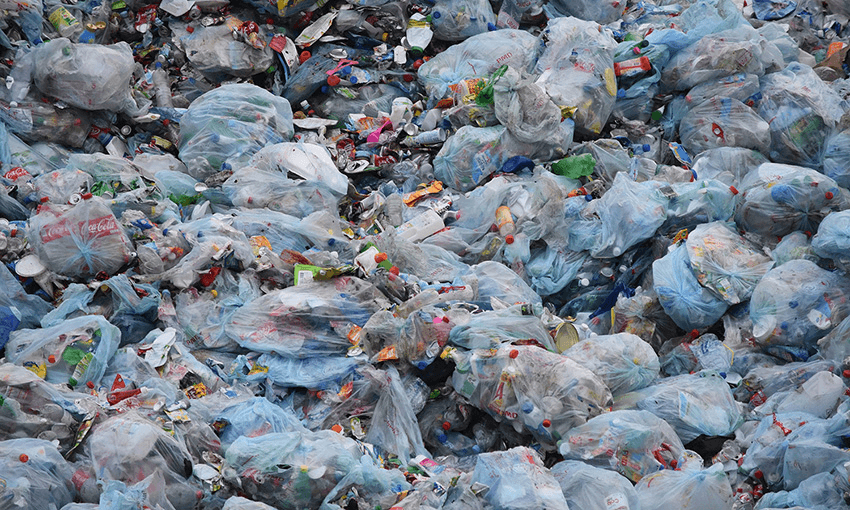Welcome to the Cheat Sheet, a clickable, shareable, bite-sized FAQ on the news of the moment. Today, the latest on New Zealand’s efforts to fight plastic pollution.
What’s all this then?
It’s a wrap on plastic, with everyone from Countdown to Coca-Cola joining a pledge to (eventually) eliminate things like straws and bags from their businesses to mark World Environment Day. Meanwhile the government is also signalling a national ban on single use bags may be announced before the end of the year. And, as of June 1, Z stations across the country have stopped giving out plastic bags, in a move they acknowledge customers might find uncomfortable at first.
Great! We love the earth! Right?
Well actually… Greenpeace says it’s mostly a load of old tosh, and that we should be sceptical of any industry-led action on plastics, noting the word ‘reduction’ was conspicuously absent from the Beat Plastic Pollution pledge.
“We need to be wary of pledges like this that sound good, but in reality allow the rise of plastic packaging production in our lives and our oceans, all while companies pose as green leaders,” said Emily Hunter, Oceans Campaigner at Greenpeace.
“Pledges like this ignore the stark reality of what’s happening in this country,” she said. “We’ve got plastic waste being stockpiled by councils with no place to go, there are no industrial-scale composting facilities for bioplastic and there are no bans on plastic bags, cutlery and other easy-to-eliminate plastic pollution. If we don’t eliminate and significantly reduce plastic packaging and single use plastics this problem won’t be fixed.”
Greenpeace are calling for the government to adopt a plastic pollution strategy, one which starts with a comprehensive ban on plastic bags and moves into eliminating other avoidable single-use plastics, like straws, cutlery, and those little sticks you use to stir your coffee. Greenpeace also want a nationwide container deposit scheme to encourage people to recycle plastic drinking bottles. They warn that anything short of a government-led process simply will not go far enough.
“It’s time for the New Zealand government to step-up as a leader on the plastic crisis, and not fall for false solutions.”
Perhaps not surprisingly, The Kiwi Bottle Drive, which is campaigning for a New Zealand-wide bottle deposit scheme, agrees with Greenpeace.
“There are fantastic legislative tools we already have available to tackle our plastic waste, like bottle deposits and a plastic bag ban, but the government just isn’t stepping up,” said plastics campaigner Holly Dove.
“[The Beat Plastic Pollution pledge] isn’t strong action, this is industry greenwash.”
So what is the government doing, then?
Associate Environment Minister Eugenie Sage said yesterday the government is looking at a ban on single use plastic bags, and that it could be announced in “the next few months”. Sage also commended the Beat Plastic Pollution pledge, saying companies like Nestle and Coca Cola have “drawn a line in the sand, pledging to do their bit to stem the tide of plastic waste and plastic pollution.”
Greenpeace questioned that, saying the multinational corporations that signed the pledge are some of the top contributors to single-use plastic pollution worldwide and in New Zealand, citing concerning research from the Philippines.
How bad is plastic pollution, anyway?
By some estimates, more than two million single-use plastic bags are handed out every minute worldwide. And, according to Greenpeace, a rubbish truck full of plastic enters our oceans every minute, with plastic packaging use predicted to double by 2020 and quadruple by 2050. Eugenie Sage said that scientists estimate there are already more than 150 million tonnes of plastic in the ocean, and that it’s rapidly getting worse.
“If nothing changes, plastic in oceans will weigh more than their fish by 2050.”
What are other countries doing about it?
In the progressive paradise of Denmark, plastic bags have faced a steep levy since the late ’90s, a measure adopted in other places like Ireland a few years later. Ironically, recent research out of the Danish Environmental Protection Agency indicated plastic bags may be the most environmental friendly option after all. In 2016, Morocco – the second largest consumer after the United States – banned the production and use of plastic bags, whereas in Kenya producing, selling or even using plastic bags now carries penalties of up to four years in jail or a fine up to NZ$55,000. Most of Australia’s major supermarkets will have stopped handing out single-use plastic bags by the end of June.
On the other hand, BP warns that with 8-10% of oil used in the production of plastics, banning plastic bags could slow the growth of the demand on earth-juice. How sad.
The Spinoff’s business section is enabled by our friends at Kiwibank. Kiwibank backs small to medium businesses, social enterprises and Kiwis who innovate to make good things happen.
Check out how Kiwibank can help your business take the next step.
